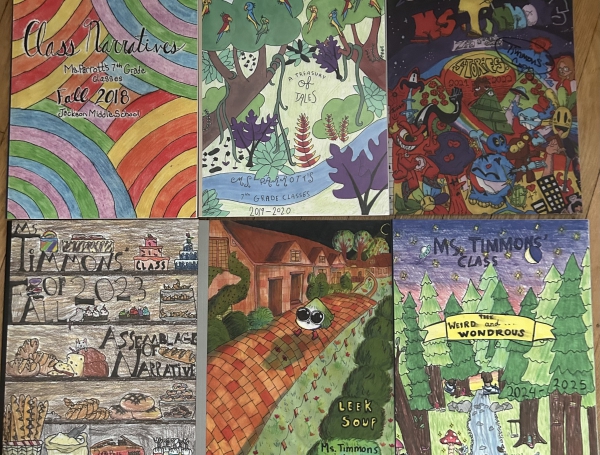

Keeping Students Engaged Through Differentiated Anchor Activities
January 25, 2023
Oftentimes, teachers strive to keep the "high fliers" in a subject area engaged and challenged independently while we supply other students with needed scaffolding and support. These students must be stretched and engaged as others look to meet or exceed the objective. While doing a book study of "Things Fall Apart by Chinua Achebe, a contextualization of imperialism by utilizing an exploration of Heart of Darkness by Joseph Conrad allowed students to be challenged by contrasting conceptual depictions in these groups as well as offering a more challenging text to explore. This was done through text explorations stations and mini-Socratic seminars as anchor activities.
When looking at Achebe's work, I was hoping to have the students grasp the differing perspectives of colonialism. As I looked at non-fiction materials for some students, A challenge for some of my other students might be an exploration through the eyes of Achebe and Conrad. By setting up text exploration stations, students could explore Conrad's text through books on tape, group-read passages, video excerpts from films, and independent reading. These stations were varied but generally focused on finding evidence that contrasted the styles of Achebe and Conrad. Students were given choices of which medium they wished to explore and who they wished to work with as these anchor activities were presented. Students would internalize this material as often we would see them drawing connections in whole-class discussions. Other students also became interested in this material and would often ask to join these stations once they had shown mastery of their work. Text analysis and comprehension was the first step in the anchor activities to be followed by empowering students to become experts in an area of inquiry.
Students in my class are accustomed to Socratic seminars; however, this was the first time I let loose and allowed these seminars to take place without my guidance and support. I was looking forward to seeing how my students would do running their own Socratic seminar without my supervision. The seminars were set up with guiding questions under the "Book Club" title. Through these questions, students were asked to record their conversations and post them as a resource in Google Classroom for other students to listen to. Students were again guided to address certain passages from Conrad in order to make connections, contrast, and draw conclusions regarding Conrad's perspective and what this may have meant regarding the mindset and perspective of colonizers. Organically, this began to evolve as students asked me if they could present these seminars as a talk show. I, of course, allowed it and found their passion to be reinvigorated as they could embed technology into these presentations. Allowing them to link non-fiction materials, videos, and other media into these activities. Eventually, these groups would divide and add members organically as the unit progressed. Student-centered, student-driven, and high engagement. What more could I ask for?
By differentiating content for anchor activities, I provided myself some time to support my second language learners while encouraging students who had already mastered the objective at hand to explore a topic that added to their understanding of the historical context of what they were reading. Not only did this avoid the differentiation trap of merely giving students more work, but it truly brought students together in collaborative expert groups. Preparation was easy; once the students understood their task, it became self-directed.
I'm looking forward to my next Achebe unit.
This guest article was written by John Arunski while taking the online continuing education course Differentiation: It's Not as Hard as You Think by THI instructor Brenda McKinney.




